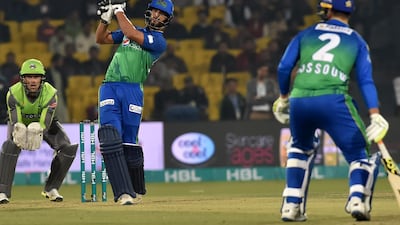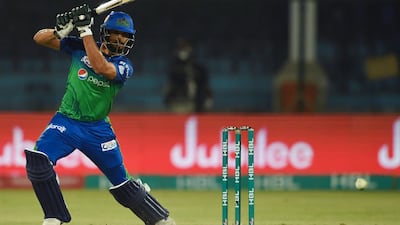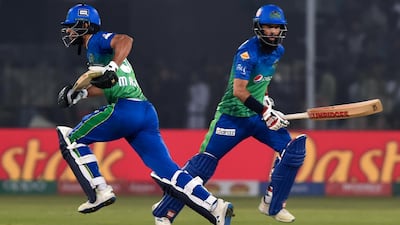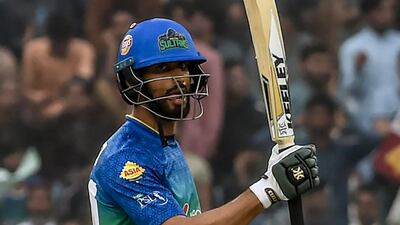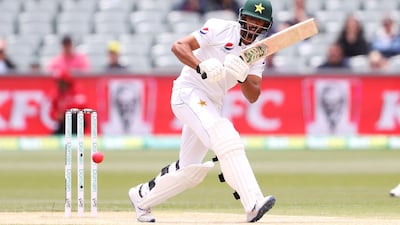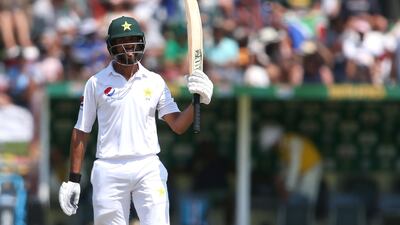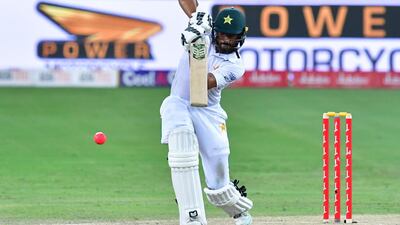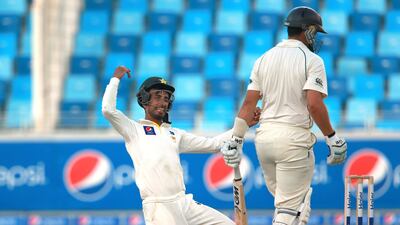It is nearly six weeks now since the march of coronavirus brought a halt to the last major cricket competition left standing, the Pakistan Super League.
As it stands, the tournament is on pause. It is hardly inconceivable, though, that it is all done and wrapped up.
Sure, the powers-that-be are looking for a time and place to reschedule. But so is everybody else.
Getting all the bands back together and squeezing in three play-off games then a final, is going to be a tough ask.
Especially when the Asia Cup, T20 World Cup, Indian Premier League, as well as numerous international series, will be vying for the same players and airtime.
It means that one of the great revival stories of recent times in Pakistan cricket will miss out on its crowning moment.
No, not Multan Sultans per se, who shook off the underachievement of their first two years as a competitive entity by becoming the outstanding side in this year’s tournament. Rather, their captain, Shan Masood.
That guy who some might remember as a callow rookie, some way short of the grade when he got his first crack at the big time. Someone who was tormented by James Anderson. And a player who was dismissed as a shot-less wonder when he scored 37 from 173 balls in a Test match in Dubai.
Those memories are starting to feel dated now. Few players define the idea that “you win or you learn” better than the 30-year-old opener from Karachi.
"It is something that will always be a part of me," Masood told The National. "I consider myself a good learner, someone who is always willing to learn.
“Till the day I stop playing, I will continue learning and try to work out what the best way to do a particular thing is.
“Whether that is Test cricket, one-day international cricket, the shots you need to play international cricket, the shots you need for different conditions, in England, Australia or South Africa.”
It is funny how life works out. Back when Masood was at boarding school and then university in England, the country that he refers to as his second home were enjoying an ascent in cricket under the coaching of Andy Flower.
Now, a decade or so later, he and Flower have masterminded the rise of Multan Sultans as captain and coach respectively.
It is no surprise that they got on. Masood, who studied economics and then management, said his view on sport was altered by watching the Brad Pitt movie, Moneyball.
The Michael Lewis book on which it is based it is known to have inspired many of Flower’s coaching philosophies.
"I love seeing how numbers paint pictures, and that all started with watching Moneyball," Masood said.
"Sometimes you grow an interest in something and then, a few years down the line, you read something saying: 'Andy Flower, the head coach of England, has hired [analyst] Nathan Leamon, and they're following the Moneyball process.'
“Then, six years down the line, you are working with the two of them. For me, that is the beauty of sports. You think about something, you dream about something, and that actually ends up happening.
___________________________________________
PSL team of the tournament
___________________________________________
“It was fascinating to get to work with them. I think we formed a great partnership, in terms of putting teams out there based on strategies.”
The PSL was suspended just before its play-off stage. Multan were the leading outfit until that point, having lost just two of their 10 matches.
Their record was an endorsement for their data-driven approach, but Masood says their success was not exclusively guided by the science.
“What we decided the first day was that numbers would always be a good tool, but they are never the solution,” he said.
“They help you make decisions, but at the end of the day, the call has to be made by the captain.
“I might have a host of recommendations, but the final decision lies with me, not the numbers.”
While Masood said he found like-minds in the leadership of his franchise, he does acknowledge he was a little apprehensive about leading a team with coaches and players of such great renown.
“Initially, I felt that it might be a bit intimidating and wondered how I would respond to certain situations,” he said.
“But I told myself that I would just let it be, and welcome each day as it comes, and I’ll experience the occasion before judging the occasion.
“Before even going into the tournament, when you get such a big responsibility, you start thinking about it too much.
“When I went there, it became pretty clear how Andy wanted to run things.
“He told me straight away that the captain plays a huge role, and that he wants me to be me.
“Yes, they ran things in different ways to other teams, but I was empowered with decision-making. As a human being, it helped me grow a lot.
“My relationship with Andy was pretty incredible from the start. We took some big decisions, and there were times when I took decisions where he probably didn’t agree, but he let me make them.
“When those decisions didn’t come off, he told me it was a learning curve. As a person, it was something that helped me grow a lot.”
All of which should benefit Pakistan, too. Masood had already re-emerged as a player of great substance in international cricket in recent times. The PSL is the latest box ticked.
The Kuwait-born batsman said he did doubt himself when he was younger, but that he now feels comfortable in his own skin.
“I’m not sure there is a cricket in the world that goes out to bat 10 times and gets 10 hundreds, or a bowler who goes out and gets five wickets for 10 games in a row,” he said.
“You have to get comfortable with all the realities, and comfortable with the fact that all you can control is the process, and that you have to be willing to learn and have an open mind.
“I think I got comfortable with that mentally, and it allowed me to actually express myself better.
“I used to practice a lot back then as well, but when you have a process you make it purposeful.
“You learn the things that you have to learn, what the best players in the world are doing.”
The global health situation means it is unclear what his next frontier will be. Maybe he will get the chance to avenge his past woes in a Test series in England.
Maybe he will even become a PSL-winning captain in absentia, although he hopes not.
“Not having a knock-out stage would not represent the tournament as it usually is. It is always the fun bit," he said.
“There are huge risks and rewards for performances. You either win or go back home.
“We prepared a lot for this season. We went about it in a way that was unique among the PSL franchises.
“We built a team around specific players. If there is talk about having less players, personally I wouldn’t welcome it.
“At the moment, what is most important is getting more clarity on the situation.”
